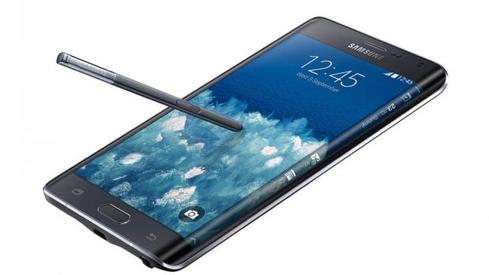iPhone Vs. Android: Apple's Success Only Goes So FariPhone Vs. Android: Apple's Success Only Goes So Far
Apple's iPhone is a beast, but it will never fully conquer the smartphone market, where Android still holds some sway.


iPhone 6s And 7 Other Smartphones To Watch In 2015
iPhone 6s And 7 Other Smartphones To Watch In 2015 (Click image for larger view and slideshow.)
There's no denying the Apple iPhone is king of smartphones. It may be a big seller the world over, but it doesn't make sense for everyone. There will always be room in the market for competition, especially in the entry-level segment.
Apple owns more than 90% of all profits in the smartphone business. No other company makes money selling smartphones the way Apple does. It's astounding, really, that Apple is able to gobble up so much of the profit. It's even more astounding that other companies even bother trying to compete. But they do, and they will.
Apple reported sales of about 47.5 million iPhones during its third fiscal quarter. That follows sales of 61.2 million and 74.5 million during its first and second quarters, respectively. The iPhone has been selling like mad since Apple debuted the iPhone 6 and iPhone 6 Plus last fall.
To put the numbers into a little perspective, Samsung outdid Apple in its most recent quarter, with shipments of between 71 million and 76 million.
Globally, Android slays the iPhone in terms of volume. IDC predicts Android shipments will top 1.15 billion, giving it 79.4% of the entire smartphone market this year. iPhone shipments are predicted to reach 237 million for 2015, which puts the iPhone at 16.4% of the market. Android is outselling the iPhone nearly five to one.
The iPhone has some room to grow.
"There's no question that a large chunk of Apple's installed base is still using older models (pre-iPhone 6/6+), which leaves continued growth opportunity in the second half of 2015 and beyond," Ryan Reith, program director with IDC, noted in a report. "In addition, IDC believes a sizable portion of the Android installed base were those who migrated over to the platform from iOS with the desire for a larger screen smartphone. This is an opportunity Apple is no question focusing on."
For too long, Apple kept the iPhone's screen at 4.0 inches or less while the screens of Android devices ratcheted up to 5.0 inches or more. The bigger screens appealed to consumers, and sales of such Android phones skyrocketed. As soon as Apple began making big phones, some Android users began to return to the iPhone.
[Read more about Apple's latest financial quarter.]
Apple competes well at the top of the market. With prices ranging from $649 to $949, the iPhone is among the most expensive handsets in the world.
This is why Apple will never own the entire market.
"The price difference between Android and iOS devices in many markets will remain a significant hurdle for Apple," said IDC's Reith. That will eventually block Apple's growth.
The market for low-cost handsets is significant, as prepaid carriers in the US serve to demonstrate. They count tens of millions of customers, and most of their handsets cost less than $200. The same scenario applies to emerging markets, where cost is king.
Bottom line: The iPhone is a winner and likely always will be, but Apple can't (and won't) compete in the low end of the market, leaving plenty of opportunity for others.
About the Author
You May Also Like






